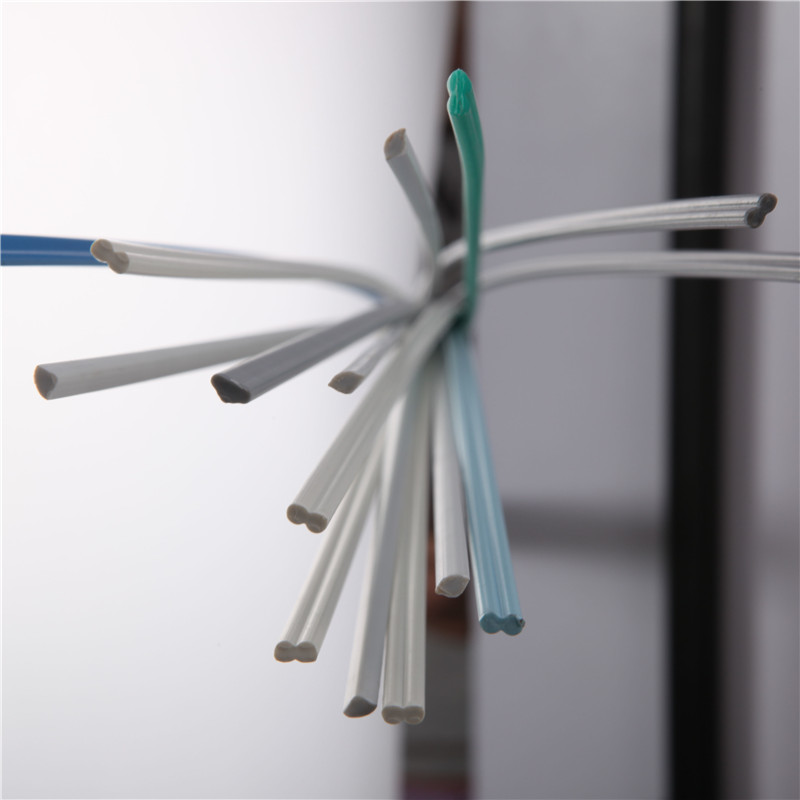Aug . 01, 2024 00:46 Back to list
Understanding the Benefits and Applications of PVC-M Pipe in Modern Construction Projects
Understanding PVC-M Pipes A Durable Solution for Modern Infrastructure
Polyvinyl chloride modified (PVC-M) pipes have gained significant attention in the industrial and construction sectors due to their superior properties, making them an ideal choice for a wide range of applications. As a modified version of traditional PVC pipes, PVC-M combines the advantageous features of PVC with enhanced impact resistance and flexibility. This article explores the characteristics, advantages, applications, and future outlook of PVC-M pipes in modern infrastructure.
What are PVC-M Pipes?
PVC-M pipes are manufactured from a blend of polyvinyl chloride and various additives that improve their mechanical and physical properties. This modification results in a material that is not only robust but also capable of withstanding higher pressures and impacts compared to standard PVC pipes. PVC-M pipes are typically used in water distribution, wastewater management, and agricultural applications due to their excellent performance and durability.
Key Characteristics of PVC-M Pipes
1. Strength and Flexibility One of the standout features of PVC-M pipes is their enhanced strength-to-weight ratio. This characteristic allows for the design of lighter systems that do not compromise on durability. The flexibility of PVC-M pipes also enables them to handle ground movements and thermal expansions better than rigid piping systems.
2. Corrosion Resistance PVC-M pipes exhibit high resistance to a variety of chemicals and corrosive environments. This property makes them suitable for use in wastewater systems and environments where traditional metal pipes would corrode over time.
3. Low Friction Loss The smooth interior surfaces of PVC-M pipes reduce friction loss, allowing for efficient fluid flow. This efficiency is crucial for water supply and irrigation systems, where pressure needs to be maintained.
4. Longevity PVC-M pipes have a long lifespan, often exceeding 50 years with proper installation and maintenance. Their durability helps reduce the need for frequent replacements, providing cost savings over time.
5. Environmental Impact Being a lightweight material, PVC-M requires less energy during transportation, leading to a reduced carbon footprint. Additionally, the pipes can be recycled, making them a more sustainable option in terms of material use.
pvc-m pipe

Applications of PVC-M Pipes
PVC-M pipes are highly versatile and are used in various applications, including
- Water Supply Their strength and flexibility make them an excellent choice for municipal water supply systems, ensuring consistent and reliable service. - Sewage and Drainage The corrosion resistance of PVC-M pipes allows for safe and efficient transport of wastewater without the risk of material degradation.
- Irrigation Systems In agriculture, PVC-M pipes are used for drip irrigation and sprinkler systems, helping to optimize water usage and enhance crop yield.
- Telecommunication PVC-M pipes are also employed in the installation of underground cables, offering protection against environmental factors.
Future Outlook
As urbanization continues to grow and infrastructure development becomes a priority, the demand for durable and efficient piping systems like PVC-M will likely increase. The ability of PVC-M to adapt to various environmental and operational challenges positions it as a reliable choice for future projects.
The ongoing advancements in manufacturing technologies are expected to further enhance the properties of PVC-M pipes, making them an even more attractive option for engineers and contractors. From smart water management to sustainable farming practices, the role of PVC-M pipes is set to expand, contributing significantly to modern infrastructure.
In conclusion, PVC-M pipes represent a blend of strength, flexibility, and efficiency. Their unique properties make them indispensable in various sectors, paving the way for sustainable and resilient infrastructure in the years to come.
-
High-Quality PPR Pipes and Fittings Durable ERA PPR & PVC PPR Solutions
NewsJul.08,2025
-
Black HDPE Cutting Board - Durable, Non-Porous & Food Safe HDPE Plastic Cutting Board
NewsJul.08,2025
-
High-Quality CPVC Panel Durable HDPE & PVC Panels Supplier
NewsJul.08,2025
-
Double PE Welding Rod Supplier - High Strength, Durable & Versatile Welding Solutions
NewsJul.07,2025
-
High-Quality PVC-O Pipe Supplier Durable 75mm PVC Pipe & Connections Leading PVC Pipe Company
NewsJul.07,2025
-
HDPE Drainage Pipe Supplier – Durable & Corrosion-Resistant Solutions
NewsJul.06,2025

